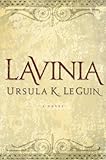
A bit of background:
When I'm Games Mastering, I love published adventures. They have pretty pictures, nice maps, game stats all done up, and, hopefully, great settings, plots, and characters. I take these works, and then I put them on the operating table and modify them.
Yes, I also love crafting my own adventures. But that takes time. It can take 5 - 10 hours of design time for 1 hour of play time. And it can be fun. So I do it, just not all the time.
Modding an adventure lets you keep what you like and fix what you don't.
Baron Hopes is the last of three adventures for Dark Heresy in the Purge the Unclean book, by T. S. Luikhart. I really enjoyed the first two, and the slight mods I did on them were personalizations, where I brought in back stories of my players and tied them to the game. I like T. S. Luikhart's work, but no one is perfect.
WARNING: Spoilers for Baron Hopes, don't read this if you are going to be a player in this adventure.These earlier adventures had the players going head to head against a criminal heresy called The Serrated Query. Baron Hopes, as written, had the players going against an ex-ally of the Serrated Query. With a leader who was invulnerable to harm unless the players somehow figured out the one thing that could harm him. No clues were provided for the players. So the GM either had to tell them, let them die, or have some non-player character (NPC) solve the adventure for them.
The Serrated Query hook in Baron Hopes just fades away, and there is no arc to to that long standing feud. There is also a zombie apocalypse, and I had recently run one of my own design (
Scrivner's Star), and didn't think we needed another so soon.
The Mod: I brought back the Serrated Query, big time. They did not take kindly to Morirr, the villain in Baron Hopes, and after years of study found his weekness: The blood of his arch enemy, Barron Ulbrexis. So they found tissue samples of the Barron, and cloned him. They have a four year old boy they are pumping for blood. Ick! They have modified flamers that inject the boy's blood into the flame.
The Serated Query also did not take kindly to what the players had done to them in previous adventures, so they have been working in the shadows. Their plan is to get the players and Morirr to tear each other up. Then kill any survivors. They have no idea that Barron Ulbrexis is still alive, and working with the players.
I have the party trailed by a SQ agent with a "blood-flamer" who is also an old enemy of a party member. Eventually, they capture the agent and get some ideas on what's going on, and get the "blood-flamer." This shifts Morirr to a secondary threat, as the SQ come in force at the climatic battle.
The Serrated Query are lead by a major leader, and backed by elite troops. They also bring in help from Dark Eldar Corsairs whom the players had tangled with before. This helped create a sense of resolution.
The Serrated Query also had a floating space helmet that opened like a clam shell. It floated over to the Psyker player character, where he saw the two mono blades at neck level. The helmet's mission was to cut off the Psyker's Head, affix it to in-helmet life support, and float away as he screamed. It took the player a burned Fate Point to get out of that one.
I still used the nice maps, the cool characters, and the subplots of the adventure. One of the cool characters is very obnoxious and loathsome, so I had his boss have a vendeta against one of the player's families. He gave orders to shoot off the player character's legs, and when that was impossible, he told his men to just kill the player. Killing this side-show boss seemed to please my players emensely.
So, if you are a GM, and have a published adventure, don't let what is written railroad you into a game not to your liking. Take scalpel, hacksaw, and chainsword, and release your inner Frankenstein.
(Any Dark Heresy GMs who want the crunchy details, let me know.)
Edit: I put the crunchy bits up on the FFG forums:
http://www.fantasyflightgames.com/edge_foros_discusion.asp?efid=101&efcid=3&efidt=178159Scroll down to my second post.
 Bullies, Bastards And Bitches: How To Write The Bad Guys Of Fiction by Jessica Morrell
Bullies, Bastards And Bitches: How To Write The Bad Guys Of Fiction by Jessica Morrell









